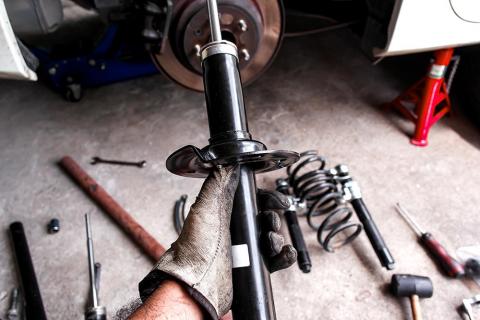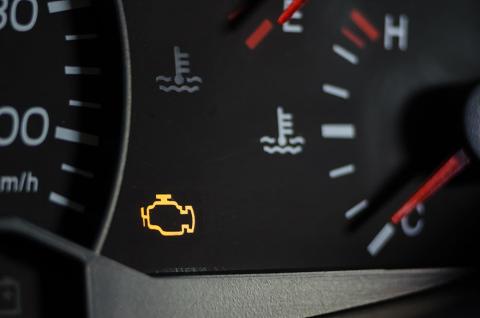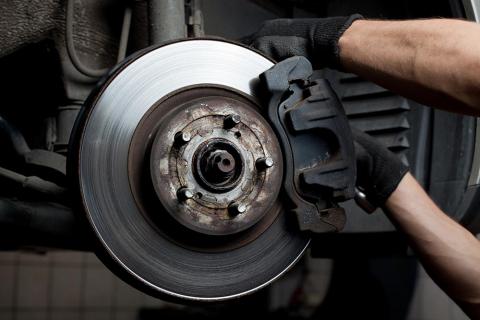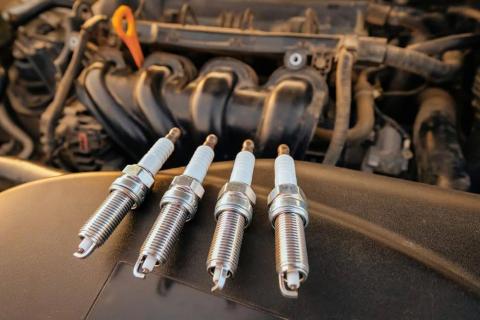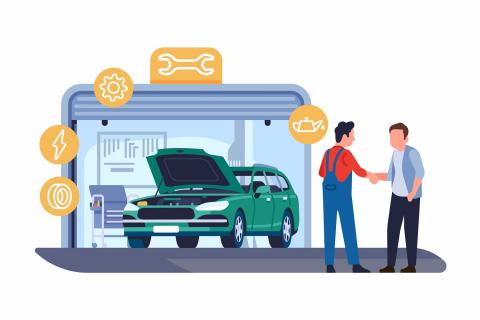As the leaves begin to change and temperatures start to drop, your vehicle needs special attention to prepare for the challenging months ahead. Fall car care is crucial for ensuring your safety, preventing costly repairs, and maintaining your vehicle's performance throughout autumn and the approaching winter season. This comprehensive guide will walk you through the essential automotive maintenance tasks every driver should prioritize this fall.
Why Fall Vehicle Maintenance Matters
Autumn represents a critical transition period for your vehicle. The extreme heat of summer can take a toll on various components, while the upcoming cold weather presents its own set of challenges. Proactive fall maintenance helps you identify wear and tear before minor issues become major problems, ensuring your vehicle remains reliable when you need it most.
Battery Testing and Inspection
Cold weather is notoriously hard on car batteries. In fact, battery failure is one of the leading causes of breakdowns during fall and winter months. Your battery's performance can decrease significantly as temperatures drop, making it essential to have it tested before the cold sets in.
A professional battery test examines the charge level, cranking power, and overall condition of your battery and charging system. If your battery is more than three years old, shows signs of corrosion, or struggles to start your engine, fall is the perfect time for a replacement. Don't wait until you're stranded in a parking lot on a freezing morning.
Tire Inspection and Rotation
Your tires are your vehicle's only contact with the road, making tire maintenance critical for safety during wet, icy, and snowy conditions. Fall is an ideal time to inspect tire tread depth, check for uneven wear patterns, and ensure proper tire pressure.
As temperatures fluctuate, tire pressure can change significantly. For every 10-degree drop in temperature, tire pressure can decrease by one to two PSI. Underinflated tires reduce fuel efficiency, compromise handling, and wear out faster. Regular tire rotation extends tire life and promotes even wear across all four tires.
Consider whether all-season tires will suffice for your climate, or if dedicated winter tires would provide better traction and safety during the coldest months.
Brake System Evaluation
Reliable brakes are essential year-round, but they become even more critical when road conditions deteriorate. Wet leaves, rain, ice, and snow all demand maximum braking performance. A comprehensive brake inspection should include examining brake pads, rotors, brake fluid, and the entire braking system.
Warning signs like squealing noises, grinding sounds, a soft brake pedal, or increased stopping distances indicate your brakes need immediate attention. Don't ignore these symptoms—brake problems only get worse and more expensive over time.
Fluid Level Checks and Changes
Your vehicle relies on various fluids to operate efficiently, and fall is an excellent time to check and top off these essential liquids. Critical fluids include engine oil, coolant, transmission fluid, brake fluid, power steering fluid, and windshield washer fluid.
Engine coolant deserves special attention during fall maintenance. The cooling system protects your engine from both overheating and freezing. Old or contaminated coolant loses its protective properties and can lead to corrosion, leaks, and engine damage. Ensure your coolant is at the proper mixture ratio to prevent freezing during cold weather.
Windshield washer fluid should be topped off with a winter-grade formula that won't freeze in low temperatures. You'll use washer fluid frequently to combat road salt, dirt, and grime during fall and winter driving.
Heating and Defrosting System Check
Nothing is more uncomfortable—or dangerous—than a malfunctioning heating system on a cold morning. Before temperatures plummet, test your vehicle's heating and defrosting systems to ensure they work properly.
The defroster is particularly important for safety, as it keeps your windshield clear of fog, frost, and ice. If your heater blows cold air, makes unusual noises, or the defroster doesn't clear your windows effectively, schedule an inspection. Common issues include low coolant levels, a faulty thermostat, a clogged heater core, or problems with the blower motor.
Wiper Blade Replacement
Visibility is paramount for safe driving, especially during fall's frequent rain showers and the approaching winter weather. Wiper blades are inexpensive components that make a huge difference in your ability to see clearly.
Inspect your wiper blades for signs of wear, such as streaking, skipping, squeaking, or torn rubber. If they're not clearing your windshield effectively, replace them. Many experts recommend replacing wiper blades every six to twelve months, making fall an ideal time for this simple maintenance task.
Don't forget to check your rear wiper if your vehicle has one, and ensure your windshield washer nozzles are clear and properly aimed.
Lighting System Inspection
With shorter days and longer nights during fall and winter, your vehicle's lighting system works harder than ever. Walk around your vehicle and check all lights, including headlights, taillights, brake lights, turn signals, and reverse lights.
Foggy or yellowed headlight lenses reduce visibility and should be restored or replaced. If you notice any bulbs are dim or burnt out, replace them promptly. Consider upgrading to brighter, longer-lasting bulbs for improved visibility during dark, stormy weather.
Belts and Hoses Examination
Rubber components like belts and hoses deteriorate over time, especially after exposure to summer heat. Cold weather can cause already-weakened belts and hoses to crack or fail completely.
During your fall automotive maintenance, have a professional inspect belts for cracks, fraying, or glazing, and check hoses for soft spots, bulges, or leaks. The serpentine belt, timing belt, and radiator hoses are particularly critical. Replacing a worn belt or hose is much less expensive and inconvenient than dealing with a breakdown.
Air Filter Replacement
Your engine air filter and cabin air filter both play important roles in vehicle performance and comfort. The engine air filter prevents dirt and debris from entering your engine, while the cabin air filter keeps the air inside your vehicle clean.
A clogged engine air filter reduces fuel efficiency and engine performance. A dirty cabin air filter compromises your heating and air conditioning efficiency and can lead to musty odors. Fall is an excellent time to inspect and replace both filters if needed.
Undercarriage Protection
Road salt, moisture, and debris during fall and winter can accelerate rust and corrosion on your vehicle's undercarriage. Consider having your vehicle's underside inspected and applying a protective coating if necessary.
Look for signs of rust, especially around the exhaust system, frame, and suspension components. Addressing rust early prevents more extensive and expensive damage down the road.
Emergency Kit Preparation
While not strictly vehicle maintenance, preparing an emergency kit is an essential part of fall car care. As weather becomes more unpredictable, having the right supplies can make a significant difference in an emergency situation.
Your emergency kit should include items like jumper cables, a flashlight with extra batteries, a first-aid kit, blankets, non-perishable snacks, water, an ice scraper, a small shovel, and basic tools. Keep your cell phone charged and consider a portable battery pack for emergencies.
Schedule Your Fall Vehicle Inspection Today
Fall car care doesn't have to be overwhelming. A comprehensive autumn vehicle maintenance inspection from qualified automotive repair professionals can identify potential problems before they leave you stranded. Most fall maintenance tasks are straightforward and affordable, especially compared to the cost of emergency repairs or being without your vehicle during the busy holiday season.
Don't wait until the first frost or snowfall to discover your vehicle isn't ready for winter. Schedule your fall automotive maintenance appointment today and drive with confidence knowing your vehicle is prepared for whatever weather comes your way. Proactive care protects your investment, ensures your safety, and provides peace of mind throughout the season.
Taking care of your vehicle during autumn isn't just about preventing breakdowns—it's about ensuring you and your loved ones can travel safely and reliably during the months ahead. Make fall car care a priority this year, and your vehicle will reward you with dependable performance when you need it most.
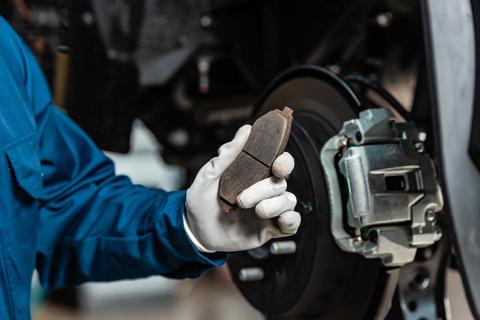

 Mon-Fri: 8am-5pm | Closed daily for lunch: 11:30am-12:30pm
Mon-Fri: 8am-5pm | Closed daily for lunch: 11:30am-12:30pm (402) 339-6460
(402) 339-6460 219 E 1st St, Papillion, NE 68046
219 E 1st St, Papillion, NE 68046

